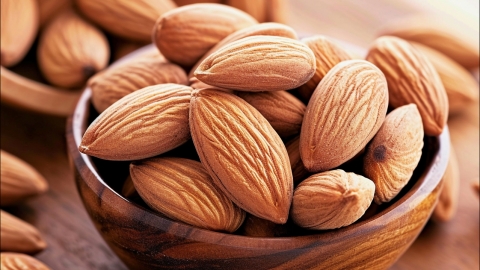Can pregnant women consume Ophiopogon japonicus (Mai Dong) and bitter almonds?
Generally speaking, pregnant women can consume Ophiopogon japonicus (McDoor) and almonds, but should do so in moderation and under the guidance of a physician. Detailed explanations are as follows:

Ophiopogon japonicus has the effects of moistening the lungs, clearing the heart, nourishing yin, and promoting the production of body fluids. If a pregnant woman experiences symptoms such as dry cough due to lung dryness, chronic cough due to yin deficiency, or thirst caused by fluid deficiency, appropriate use of Ophiopogon japonicus under the pattern differentiation and treatment principles of a TCM (Traditional Chinese Medicine) physician can provide certain therapeutic benefits. Almonds have the function of relieving cough, alleviating asthma, moistening the intestines, and promoting bowel movements. If a pregnant woman develops symptoms such as coughing with shortness of breath or constipation due to intestinal dryness, appropriate use of almonds under a doctor's guidance may help alleviate these symptoms.
However, almonds are divided into two types: sweet almonds and bitter almonds. Pregnant women should choose sweet almonds. Bitter almonds contain amygdalin, which may metabolize into hydrogen cyanide in the body. Excessive intake could potentially cause adverse effects on both the pregnant woman and the fetus, such as poisoning symptoms including dizziness, headache, and nausea. Therefore, it is recommended that pregnant women consult with a physician or nutritionist before consuming any herbal ingredients to ensure safety and effectiveness.
During pregnancy, it is advisable to maintain a balanced diet with appropriate food combinations and avoid blindly pursuing the benefits of specific ingredients, which will help ensure the health of both mother and baby.




